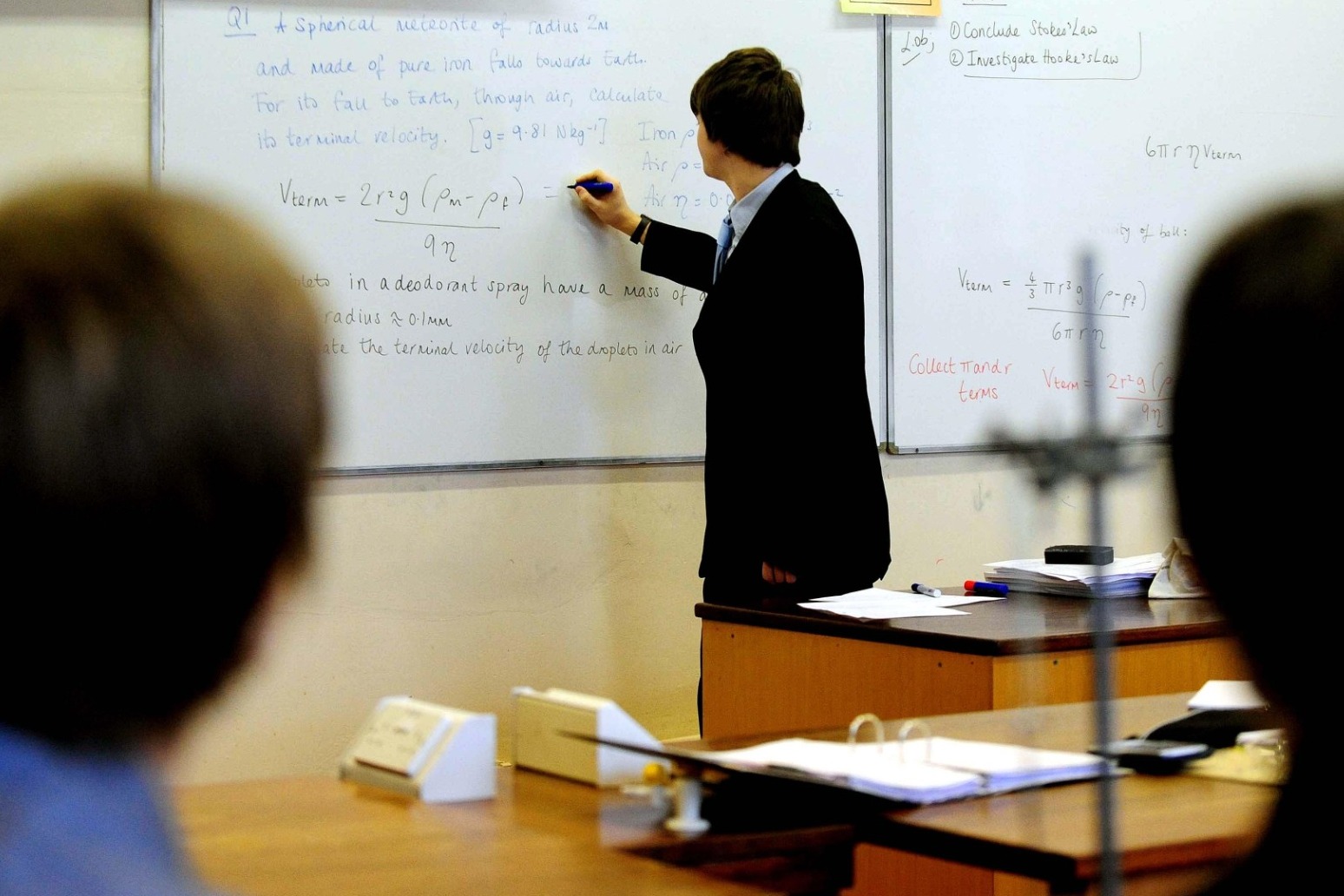Listeners:
Top listeners:
-
 play_arrow
play_arrow
Rother Radio (128K) Love Local, Love Music!
-
 play_arrow
play_arrow
Rother Radio (64K) Love Local, Love Music!
-
 play_arrow
play_arrow
Rother Radio (South Yorkshire) (64K) Love Local, Love Music!
-
 play_arrow
play_arrow
Rother Radio (South Yorkshire) (128K) Love Local, Love Music!
-
 play_arrow
play_arrow
Rother Radio (Doncaster) (64K) Love Local, Love Music!
-
 play_arrow
play_arrow
Rother Radio (Doncaster) (128K) Love Local, Love Music!
-
 play_arrow
play_arrow
Rother Radio Xmas Love Local, Love Music!
-
 play_arrow
play_arrow
Rother Radio – Special Announcement Love Local, Love Music!

More than 700,000 GCSE physics students could be without a specialist teacher, a report has warned.
The Institute of Physics (IOP) has called for urgent action to tackle the shortage in physics teachers to stop students missing out, warning pupils without access to a specialist teacher are much less likely to take physics further.
In July, the National Foundation for Educational Research (NFER) found a quarter of secondary schools from a sample of 2,296 reported having no specialist physics teachers in the School Workforce Census.
Just 16% of total teaching hours for combined science are provided by a physics teacher with a post-A-level qualification, the IOP-commissioned NFER analysis found.
For separate physics GCSEs, Government data shows 72% of teaching hours were taught by a specialist teacher.
Combining the NFER and Government data, the IOP estimated about 58% of physics lessons at GCSE are taught by a non-specialist teacher, which the institute said equates to more than 350,000 students in year 11 alone, and more than 700,000 across both GCSE years.
Tom Grinyer, chief executive of the IOP, said: “Despite the often-heroic efforts of teachers having to work in unfamiliar subjects, inevitably many of those students are missing out. Research shows that pupils without access to a specialist physics teacher are much less likely to choose to study the subject at A-level.
“If we fail to tackle this challenge, then we are failing to nurture the scientists and innovators of tomorrow – with serious consequences for our society and economy.”
Physics has faced several years of specialist teacher shortages as one of the worst-hit subjects by a recruitment and retention crisis.
NFER’s most recent data found the number of applications to teach physics has increased by 38% since July 2024. Despite this, physics was still only projected to hit around 70% of its target for secondary school recruitment for 2025.
Students in schools with no specialist physics teachers are half as likely to progress to A-level physics, the report said.
Judith Hillier, the IOP’s vice president for learning and skills, said there are about 300 schools with no students progressing to A-level physics, and this is more common in poorer areas.
“Despite some recent increases in the numbers taking physics A-level, it is clear that far too many young people are still being denied access to a specialist physics teacher, and to the opportunities that helps unlock for their attainment and progression,” she said in a foreword to the IOP report.
The institute is calling for a 10-year plan to address the lack of specialist physics teachers with an investment of £12 million a year.
The Government currently offers a £29,000 bursary for trainee physics teachers to encourage more graduates into teaching. Physics teachers in disadvantaged schools can also access up to £6,000 in retention payments while they are early in their career.
A Department for Education spokesperson said: “We are already delivering on our pledge to recruit and retain 6,500 more talented teachers with 2,300 more secondary and special schoolteachers in classrooms this year, as well as 1,300 fewer teachers leaving the profession – one of the lowest leave rates since 2010.
“We’ve also seen a 25% increase in the number of people accepting teacher training places starting this autumn in Stem (science, technology, engineering and mathematics) subjects. Through our Plan for Change, we will go further still to ensure every pupil has access to the expert teachers they need, including continuing to offer tax-free incentives to encourage more talented people into the classroom to teach subjects including physics.
“On top of this, we have announced pay awards of almost 10% over two years and have committed to restoring teaching as the highly valued profession it should be, tackling high workload and poor wellbeing.”
Published: by Radio NewsHub
Written by: Radio News Hub
Similar posts
Now Playing
Now playing: -
On Air Now

The 80’s at 8
A whole hour of music from the 80's!
Playing the best of the 80's every weekday from 8pm.
closeSponsored
Weather
Upcoming Local Event
Latest from Facebook
Search Rother Radio
Contact Us
- https://www.rotherradio.co.uk
- 01709 257 175
- studio@rotherradio.co.uk
About Us
Rother Radio – Love Local, Love Music! → Discover more
Our Partners
Rother Radio is owned by Rotherham Broadcasting CIC








